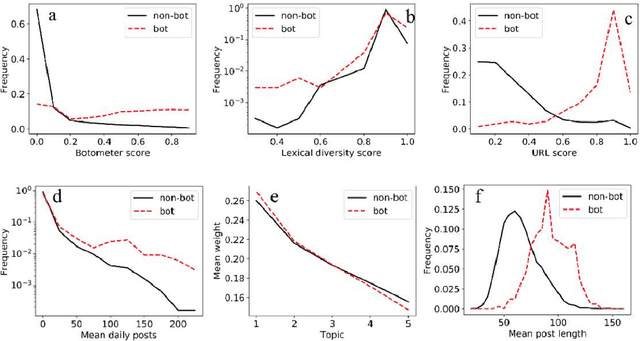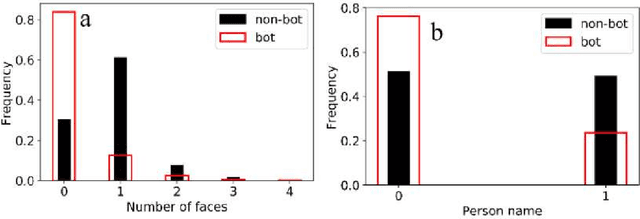Towards Automatic Bot Detection in Twitter for Health-related Tasks
Paper and Code
Sep 29, 2019


With the increasing use of social media data for health-related research, the credibility of the information from this source has been questioned as the posts may originate from automated accounts or "bots". While automatic bot detection approaches have been proposed, there are none that have been evaluated on users posting health-related information. In this paper, we extend an existing bot detection system and customize it for health-related research. Using a dataset of Twitter users, we first show that the system, which was designed for political bot detection, underperforms when applied to health-related Twitter users. We then incorporate additional features and a statistical machine learning classifier to significantly improve bot detection performance. Our approach obtains F_1 scores of 0.7 for the "bot" class, representing improvements of 0.339. Our approach is customizable and generalizable for bot detection in other health-related social media cohorts.
 Add to Chrome
Add to Chrome Add to Firefox
Add to Firefox Add to Edge
Add to Edge